Diary of Anne Frank – a review by Manohar Khushalani
Original Title: A face of fascism published in Pioneer on 31/12/2000
DOI: 10.6084/m9.figshare.12639266
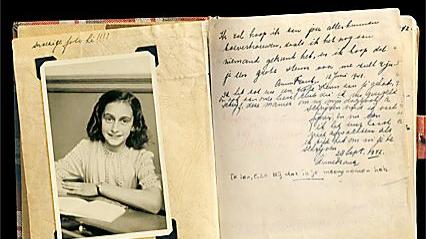
Ruchika Theatre Group is one of the oldest surviving theatre groups of Delhi. The reason is simple. It keeps regenerating itself. The Diary of Anne Frank was one such exercise in which, Feisal Alkazi, the director of the play, used an entirely inexperienced cast, inducted from the Little Actors Club. Obviously, therefore, there would be unevenness of talent, but viewed within those limitations The show put up at India Habitat Centre last week held together due to sheer sincerity of effort and excellent performance by Gayatri Khanna, Keerthana Mohan and Sahil Gill. The actress who deserves special mention is Aarti Sethi, who gave a vivacious performance in the lead role of Anne Frank, despite the fact that she had an asthmatic attack just before the show began.
The Diary of Anne Frank has sold more than 25 million copies, since it was first published in 1947. Anne Frank has become a symbol of 10 million Jews murdered by Hitler, one million of whom were children like her.
The theatrical version of this diary by Mrs and Mr Hackett was published four years later in 1951. It is a lucid and slick adaptation of the diary of the sensitive Jewish teenager who died at Bergen-Belsen, Germany, in 1945. Anne Frank received this ready-to-write diary on her 13th birthday, just before she and her family had to go into hiding in Amsterdam, which was occupied by Hitler’s army since 1940.
Her engagingly personal account in which she was cooped up in a stifling Attic for over two years with her parents, sister Margot, another family, the Van Dans and Janice Dussel – a fastidious middle aged dentist who had little patience for Anne’s effervescent liveliness.
The chronicle derives it’s appeal from its engaging mix of the mucky details of life during war and candid revelations of confused emotions of an adolescent girl.
Otto Frank began preparing and stocking an attic behind his business office at Prinsengracht 263 into a hiding place. When the freedom of the Jews began to be severely restricted, with does and don’ts about where they could shop, swim or study. It is this annexe where all the action in the play takes place. Feisal had orchestrated simultaneous action in various living areas of this claustrophobic space that brought alive the ambiance. In one scene while Anne is talking to Margo in the bedroom. In the meanwhile Janice waits impatiently on the sofa for them to finish their conversation in the living room, others are playing cards at the table. It was such skillful touches that heightened the drama.
According to the director, Feisal Alkazi, improvisations were used to develop this as a play about fascism mainly to get the younger generation involved in the issues. However, the improvisations appeared to bring out the tension between the generations. The political statement emerged more in the brochure, at the level of relationships. Älso, the sexual empathy between Anne and Van Dan’s son Peter, the mixed feelings between the two sisters; and, above all, the relationship between “a girl of 13 who has no friends” and an inanimate object – her diary – whom she chose to call ‘Kitty’, were all well worked out. As usual Feisal had chosen his music pieces well and the clear playbacks of well-recorded voice-overs synchronised perfectly with the action on stage. MK
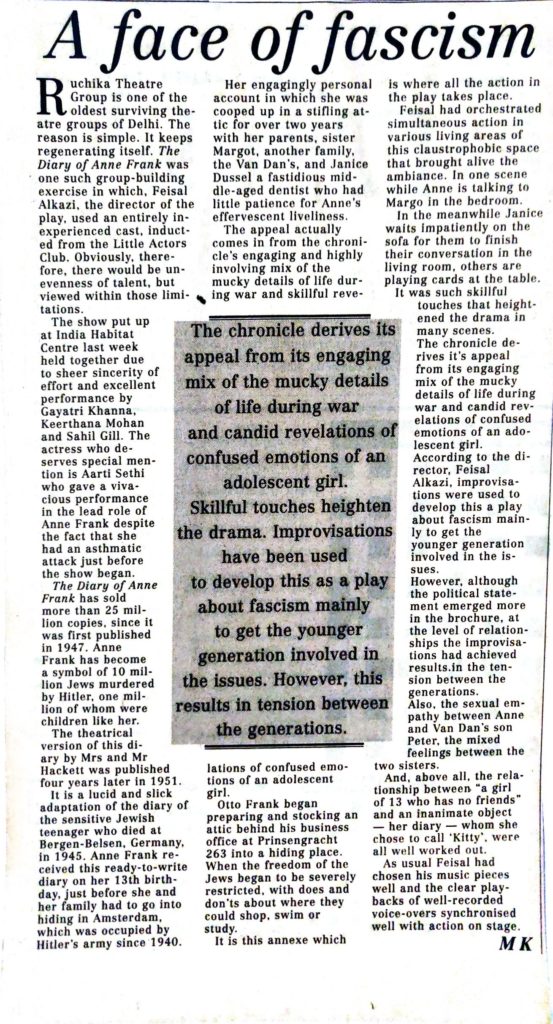



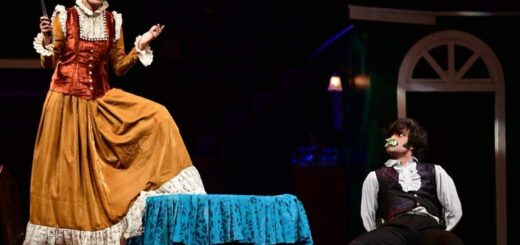

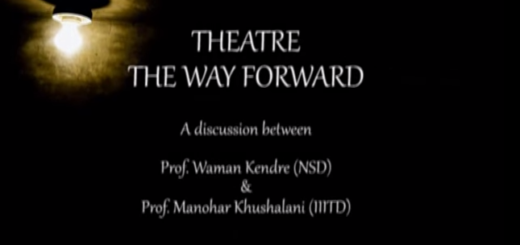




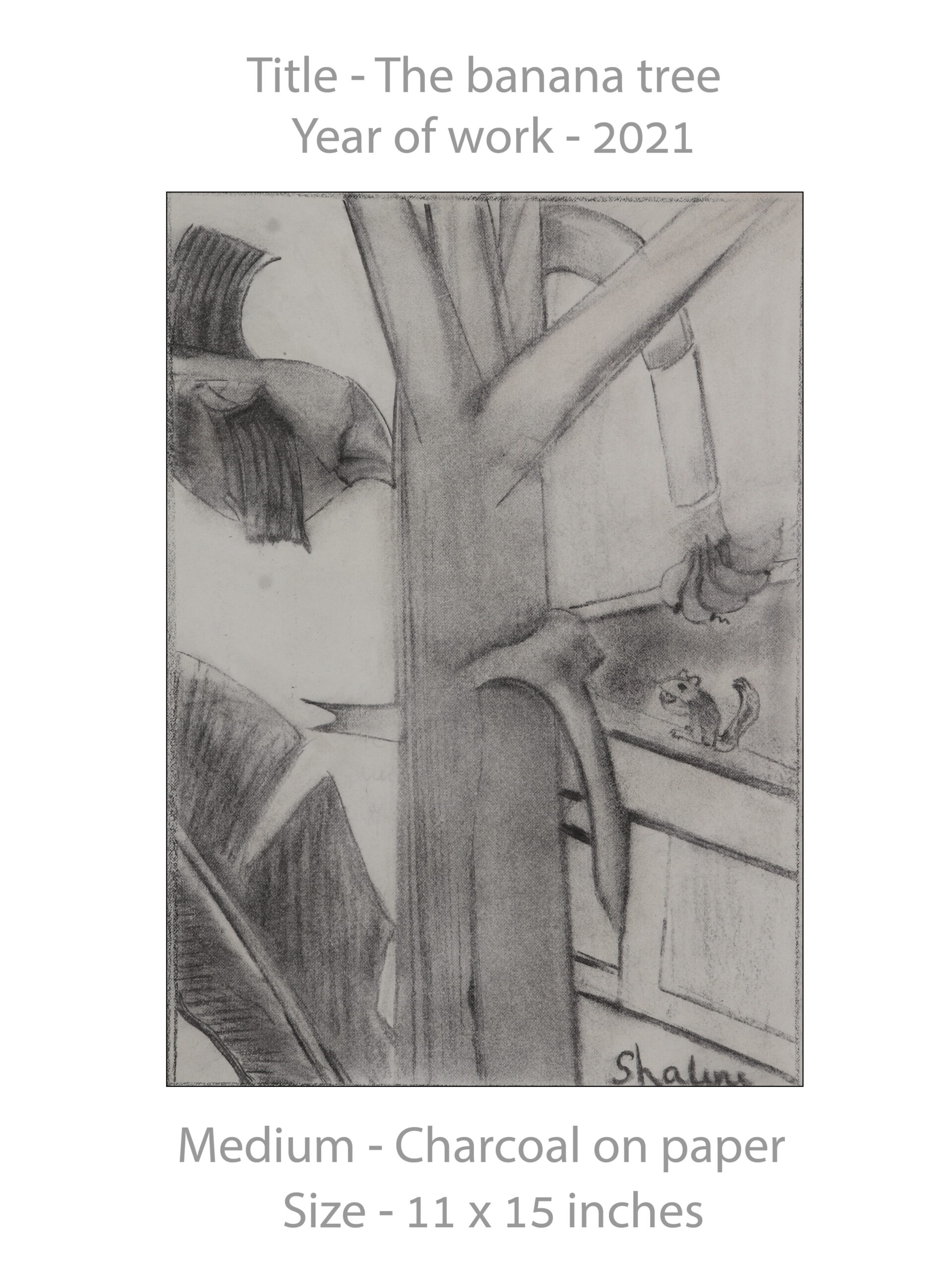
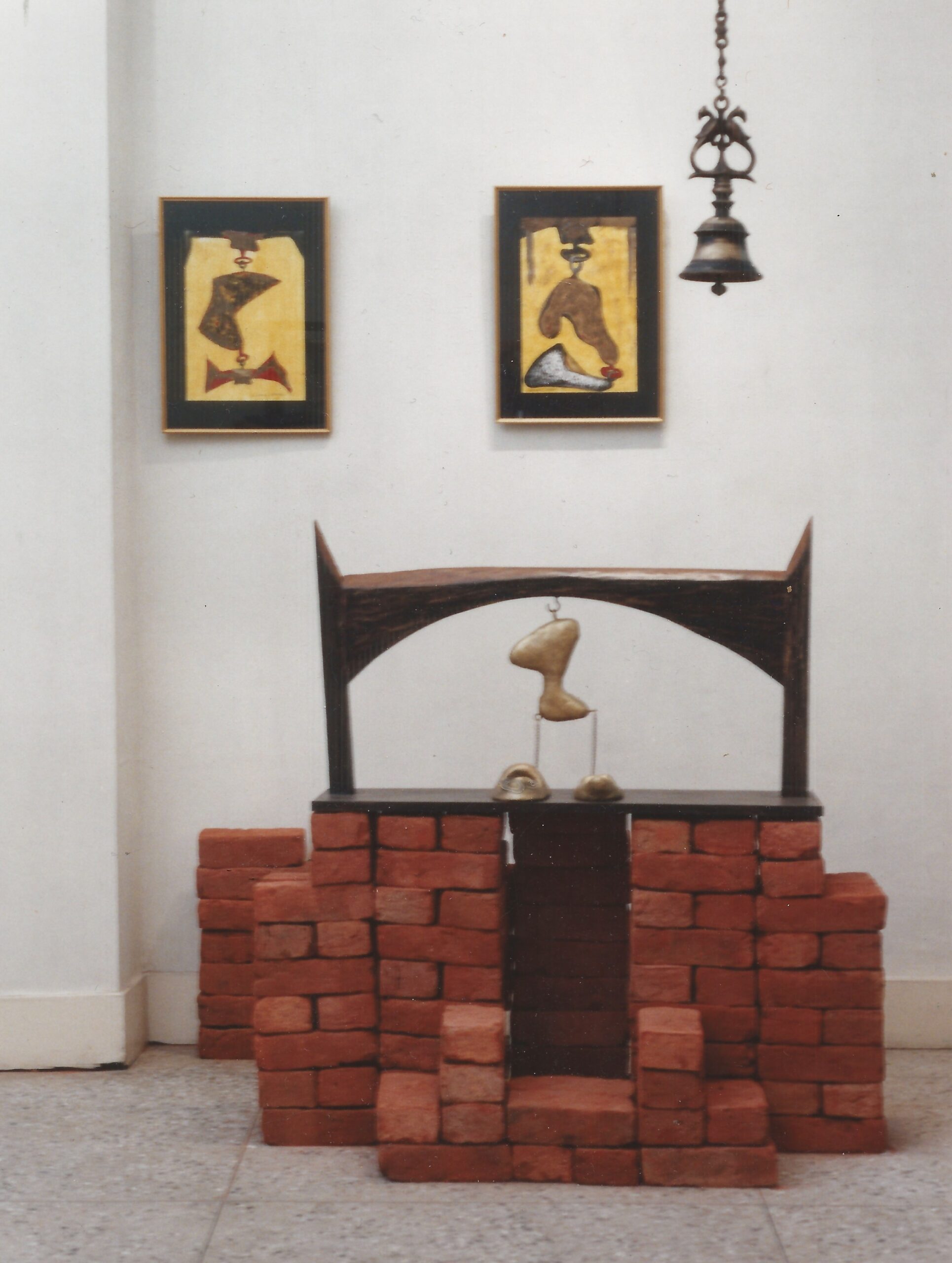
What a beautifully written review, Manohar. I wish more journalists would make the effort to cover theatre in this fashion.